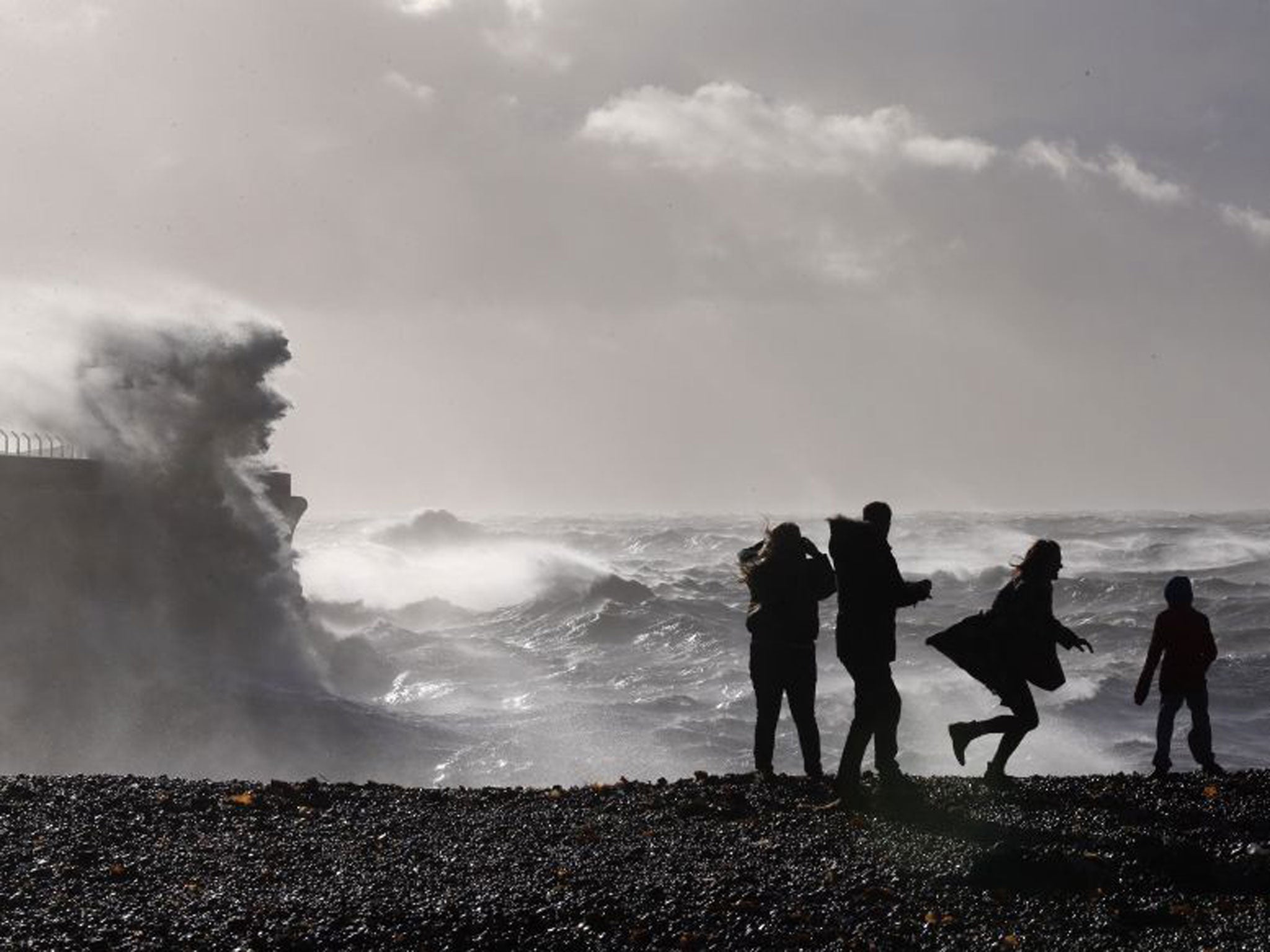Melting Arctic sea ice means it’s only going to get wetter for northern Europe
Summer downpours across northern Europe linked to variations of jet stream winds caused by loss of sea ice

The unprecedented run of wet summer weather in recent years could be due in part to the melting sea ice in the Arctic, which appears to be affecting the movement of high-altitude winds over Britain, a study has found.
Scientists believe they have discovered a “causal link” between the loss of Arctic sea ice in summer months and variations in the jet stream that have brought a series of very wet summers to Britain and northern Europe.
The six summers from 2007 to 2012 were all wetter than average and, although none of these individual events were unprecedented in themselves, the sequence of six consecutive wet summers was “extraordinary” over a 34-year period from 1979 to 2012, the study found.
The summer of 2007 was the wettest over northern Europe during this period, and the summers of 2010 and 2011 were the fifth and sixth wettest respectively. In contrast, southern Europe experienced drier-than-usual conditions, it found.
The study, based on computer models of the weather, found that the dramatic loss of summer sea ice in the Arctic over the past decade can cause the jet stream – a high altitude ribbon of fast-moving air – to shift further south, bring stormy, wet weather to Britain and north-west Europe.
“The results of the computer model suggest that melting Arctic sea ice causes a change in the position of the jet stream, and this could help to explain the recent wet summers we have seen,” said James Screen of the University of Exeter, who carried out the research. “The loss of Arctic sea ice tends to shift the jet stream to the south in summer and so increases the risk of wet summers in the UK and north-west Europe.”
He added: “The study suggests that the loss of sea ice not only has an effect on the environment and wildlife of the Arctic region, but has far-reaching consequence for people living in Europe and beyond.”
The study, published in the journal Environmental Research Letters, is the latest to suggest a possible link between the loss of summer sea ice in the Arctic and weather extremes around the northern hemisphere. Previous research found that sea-ice loss could be responsible for increasing the winter risk of cold, easterly winds from the Siberian Arctic blowing across north-western Europe, as they did in the winters of 2010 and 2011.
Dr Screen said that there are several possible factors that could have influenced recent wet summers, including the natural decade-long fluctuations in the sea-surface temperatures of the Atlantic Ocean. However, the latest study suggests that sea ice and the jet stream could explain up to a third of the trend towards wetter summers, he said.
The computer model compared weather patterns when the summer sea-ice was relatively extensive, as it was in the 1970s, to recent years, when it had contracted by nearly a half. It found that sea ice alone can influence the direction in which the jet stream tends to flow on its journey from west to east.
When the jet stream veers northwards between Scotland and Iceland, which it tended to do this summer, it usually results in long periods of dry, sunny weather. However, when it shifts south, as it did in the six previous summers, it brings wet, stormy weather over Britain from the Atlantic.
“We have some confidence that the computer models are showing the real thing. The pattern of summer rainfall we see in the computer models, when the only factor we change is the amount of sea ice in the Arctic, is very similar to what we’ve experienced over the past few years,” Dr Screen said.
Previous studies by Jennifer Francis of Rutgers University in New Jersey suggested that the loss of sea ice could be affecting the temperature gradients between polar regions and lower latitudes further south, which can influence the speed of the jet stream and so affect how likely it is to veer further north or south.
However, Dr Screen said that the latest study only partly supports this controversial idea. “The jet stream is a complex beast,” he said.
Subscribe to Independent Premium to bookmark this article
Want to bookmark your favourite articles and stories to read or reference later? Start your Independent Premium subscription today.

Join our commenting forum
Join thought-provoking conversations, follow other Independent readers and see their replies